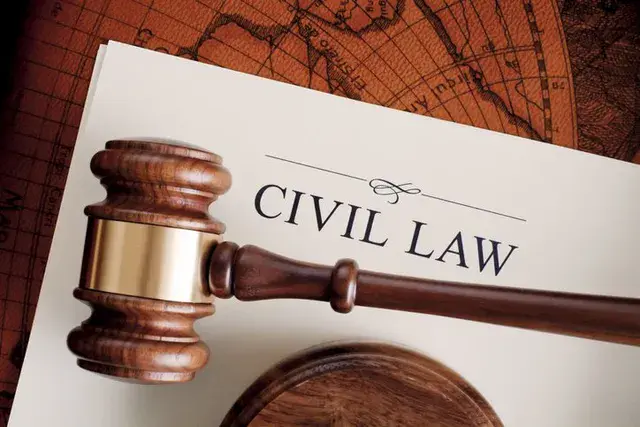
What Does a Civil Lawyer Do?
A civil lawyer represents clients in legal matters involving individual rights and obligations. These attorneys deal with a wide range of issues, including:
- Breach of contract
- Employment and labor disputes
- Personal injury lawsuits
- Tenant-landlord conflicts
- Real estate litigation
- Consumer protection claims
They may either represent plaintiffs (the party bringing the claim) or defendants (the party responding to it) in both court proceedings and out-of-court negotiations.
Types of Civil Cases a Civil Litigation Lawyer Handles
📊 Common Types of Civil Lawsuits in the U.S.
| Type of Case | Percentage of Civil Cases |
|---|---|
| Personal Injury | 29% |
| Contract Disputes | 24% |
| Property and Real Estate | 18% |
| Employment Law | 14% |
| Defamation & Libel | 7% |
| Other | 8% |
Understanding what category your case falls into will help narrow down which civil attorney is best suited for you.
How to Evaluate a Civil Lawyer
Choosing a civil litigation attorney should be based on more than just location or hourly rate. Ask yourself:
1. Do They Specialize in Your Type of Case?
Some civil lawyers focus solely on employment law, while others may handle general disputes. Look for relevant experience.
2. What Is Their Courtroom Experience?
Not all civil cases go to trial—but if yours does, you’ll want someone who’s confident and strategic in front of a judge.
3. Are Their Fees Transparent?
Many civil lawyers charge hourly, but others may offer flat rates or contingency fees (common in personal injury cases). Always ask for a clear breakdown.
4. What Do Past Clients Say?
Client testimonials, reviews, and case outcomes can offer insight into a lawyer’s reliability and success rate.
Questions to Ask During Your First Consultation
Here are smart questions that can help you evaluate a potential civil lawyer:
- Have you handled cases like mine before?
- What is your success rate in settlements vs. trials?
- How do you typically communicate with clients?
- Will you be handling my case personally?
- What are the potential risks involved?
Getting these answers upfront can prevent future misunderstandings.
Pros and Cons of Hiring a Solo Civil Attorney vs. a Law Firm
| Factor | Solo Attorney | Civil Law Firm |
|---|---|---|
| Personalized Attention | ✅ High | ⚠️ May vary by firm |
| Resources & Support | ⚠️ Limited | ✅ Extensive |
| Flexibility in Billing | ✅ Often More Flexible | ⚠️ Less Negotiable |
| Case Load | ⚠️ May Be High | ✅ Shared Among Team |
There’s no one-size-fits-all choice—it depends on your case complexity, urgency, and budget.
When You Absolutely Need a Civil Lawyer
You may be tempted to handle a dispute on your own, but hiring a civil lawyer is especially crucial when:
- The other party has legal representation
- There’s a significant amount of money or property at stake
- The dispute could affect your business or professional reputation
- You’re unsure of the legal process or deadlines
Final Thoughts
Choosing the right civil lawyer can significantly influence the outcome of your case. From negotiation to litigation, their expertise ensures that your rights are protected, your arguments are sharp, and your case is handled with precision.









